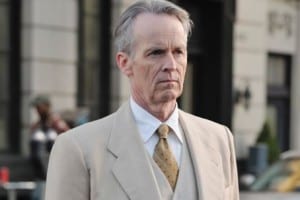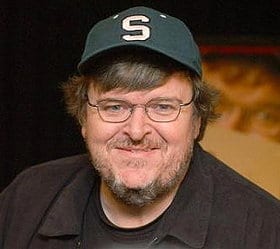The ZDT controversy heats up: Director Kathryn Bigelow defends her indefensible Zero Dark Thirty
Editor’s Note: This post offers our readers two additional views on the growing debate about Zero Dark Thirty, a film liable to win some Oscars this year. The first is by David Walsh, house critic at wsws.org, a socialist organization, and, for my money, perhaps one of the most perceptive movie evaluators in the anglophone world. As a socialist, David brings to his readers the advantage of a sophisticated class analysis, a feature that, all by itself, makes his commentary that much more insightful than the rest. The second is by Jonathan Kim, critic for ReThink Reviews and the HuffPo. Here we deal with a liberal, with all the incomprehensible and exasperating myopias of that tribe, a social tier which, while blabbing criticism always strives to keep one foot firmly planted in the system. This posture inevitably leads to confusing statements like this (pay special attention to the bolded part):
Zero Dark Thirty ignores the fact that America’s torture program inspired anti-U.S. sentiment around the world, causing many to vow revenge on the U.S. and its allies. It ignores the fact that torture scandals like Abu Ghraib caused support for the U.S. occupation in Iraq to plummet, inflaming the insurgency, prolonging the fighting, and putting U.S. troops at increased risk. It ignores the possibly irreparable damage to America’s reputation as a country that respects the rule of law. It ignores the damage torture did to America’s relationships with its allies, who became reluctant to hand over possibly valuable detainees to the U.S. for fear of being accomplices to war crimes and were furious when the U.S. detained and tortured their citizens without charge. It ignores the fact that if CIA agents such as Maya and Dan — two of Zero Dark Thirty’s “heroes” — were actual people, they deserve to be tried and convicted as war criminals under international law for their unrepentant participation in the torture of detainees.
You may wonder what I can possibly object to in the above para, which looks and smells like an impeccable call to support the nation’s highest moral standards. At the risk of sounding picayune, that’s precisely what sticks in my craw, and it happens often when dealing with the liberals’ version of America’s history. Kim does not seem to realise that it’s been a very very long time (if ever) that America truly respected the rule of law, especially in foreign affairs, as opposed to the simulacrum thereof. While the brainwashed —among which I naturally include liberals, not to mention the countless fucktards that America incubates by the millions— may think that Abu Ghraib, Guantanamo, and Mr Bushoma’s sneaky wars and invasions have done “irreparable damage to the (supposedly) sterling reputation of the United States,” we must offer the following correction: You can’t damage what doesn’t exist. On that basis I must conclude that what Kim is actually deploring is the fact the shocking revelations about torture and other inconvenient subjects have damaged the propaganda image the US ruling circles have carefully cultivated for more than a century. Their dismantlement should be cause for celebration, not concern.
Second, while the debate rages, most critics like Kim continue to take at face value the notion that Pres. Obama ended all torture. This is entirely false. Torture in one form or another continues, and will go on till the rotten but extremely hypocritical imperial system is defeated globally. That will only happen when America finally becomes a real democracy instead of a plutocracy pretending to be one. Third, if the ruling cliques based in Washington are a criminal enterprise, and in my view they are, why should we lament that other countries will now fail to collaborate with it?—P. Greanville
••••••
Director Kathryn Bigelow defends her indefensible Zero Dark Thirty
wsws.org
Director Kathryn Bigelow took to the pages of the Los Angeles Times Tuesday to defend her pro-CIA film Zero Dark Thirty which has provoked opposition inside and outside the film industry. Bigelow’s column, which reveals her as a slavish admirer of the US intelligence and military apparatus, only sinks her—deservedly—deeper in the mire.
The filmmaker and her screenwriter Mark Boal, in their political blindness and misreading of the current state of American public opinion, thought they could get away with murder, as it were. They assumed that wide layers of the population would be as excited as they were by contact with torturers and assassins and would be enthused about a version of events essentially told by the latter. They were mistaken in this.
Bigelow now finds herself in the unenviable position of claiming that her film, which clearly offers a justification for torture and other war crimes, does not advocate torture. One can only conclude from her ludicrous and incoherent LA Times piece that Bigelow was unprepared for criticism and protest.
The filmmaker begins by noting that her goal had been “to make a modern, rigorous film about counter-terrorism, centered on one of the most important and classified missions in American history.” She acknowledges that she started, in other words, by accepting everything that any serious artist would have subjected to criticism and questioning.
Bigelow betrays no interest (in the LA Times or in her movie) in the history of US intervention in the Middle East and Central Asia over the course of decades, of the CIA’s relations with Osama bin Laden and other Islamist elements in Afghanistan and elsewhere from the late 1970s onward, of the first war on Iraq in 1990-91, of Washington’s support for the oppression of the Palestinians, or, for that matter, of the murky events leading up to and surrounding the 9/11 attacks. In general, Bigelow indicates a lack of concern with anything that might disrupt her tale of “counterterrorism” and its courageous warriors.
The award-winning director presents herself in the following manner: “As a lifelong pacifist, I support all protests against the use of torture, and, quite simply, inhumane treatment of any kind.” As a devotee of counterterrorism and classified military-intelligence missions, Bigelow has already indicated that she is a unique sort of “pacifist,” but there is more to come.
She then notes disingenuously, “But I do wonder if some of the sentiments alternately [?] expressed about the film might be more appropriately directed at those who instituted and ordered these U.S. policies, as opposed to a motion picture that brings the story to the screen.” As it turns out, although Bigelow apparently hasn’t noticed it, such sentiments have been directed at those who instituted and ordered these criminal US policies for more than a decade.
Bigelow eventually gets to the heart of her argument, which has been echoed by such apologists as filmmaker Michael Moore: “Those of us who work in the arts know that depiction is not endorsement. If it was, no artist would be able to paint inhumane practices, no author could write about them, and no filmmaker could delve into the thorny subjects of our time.”
Driving home the point, she asserts that “confusing depiction with endorsement is the first step toward chilling any American artist’s ability and right to shine a light on dark deeds, especially when those deeds are cloaked in layers of secrecy and government obfuscation.”
Something important is revealed here about a generation or generations of artists and semi-intellectuals nourished on post-structuralism and postmodernism, cold, empty “conceptual art” and social indifference, and made affluent as a by-product of the stock and art market booms and related economic trends of the past several decades.
No, depiction is not endorsement, as though anyone with a brain would ever suggest that it was. However, whether the representation of torture and other inhumane acts amounts to endorsement, on the one hand, or criticism and outrage, on the other, depends on the artistic treatment (context, juxtaposition of images, the artist’s attitude) in the given instance.
In the case of Zero Dark Thirty, the evidence is clear. The film begins, as the WSWS review noted, with “a dark screen and a sound track of fire fighters’ radio calls and frantic cries for help from the upper floors of the Twin Towers on 9/11 … The juxtaposition of the 9/11 soundtrack and the harrowing scenes of torture are presented as cause and effect, with one justifying the other.”
Zero Dark Thirty was created with the intimate collaboration of the CIA, the Defense Department and the Obama White House (including the personal intervention of John Brennan, formerly the chief of the drones assassination program and current nominee for the post of CIA director). It tells its tale from the point of view of a female CIA operative.
As was the case with The Hurt Locker (2008), where the central figures were US soldiers in Iraq, Bigelow concentrates in her latest work on how exhausting and difficult it is to be a victimizer. There is no indication that Jessica Chastain’s Maya seriously questions her work or that she would not preside over the same horrific acts in the future.
The suggestion that critics of her film are not “adult” enough to deal with the world’s unpleasantness or, as Bigelow puts it in her LA Times piece, are “ignoring or denying the role it [torture] played in US counter-terrorism policy and practices,” is another cynical effort to divert attention.
Films dealt with the most nightmarish events in history, including Nazism and the Holocaust, long before Bigelow picked up a film camera.
For instance, Roberto Rossellini’s Rome, Open City (1945) includes scenes of Gestapo torture of Italian resistance fighters and Gillo Pontecorvo’s Battle of Algiers (1966) depicts the torture of Algerians at the hands of the French colonialist military. A more recent work, Ken Loach’s The Wind That Shakes the Barley (2006) vividly shows the British military torturing Irish republican detainees.
The important difference, of course, is that Rossellini, Pontecorvo and Loach, through their dramas, offered an indictment of the torturers and the forces that stood behind them, whereas Bigelow’s film takes the side, with whatever qualms, of the oppressors.
Other, better films on the Iraq and Afghanistan wars have dealt with the brutalities of those conflicts. Gavin Hood’s Rendition (2007), commented the WSWS, “depicts unflinchingly the simulated drowning technique now known to the entire world as ‘waterboarding,’ as well as the beating and electrocution of the torture victim.” However, Hood’s film, a protest against US policy, met with a generally hostile reception from the media, which criticized the movie for its “slanted” and “one-sided” and “deck-stacking” arguments.
Philip Haas’ The Situation (2006), Nick Broomfield’s Battle for Haditha (2007) and Paul Haggis’ In the Valley of Elah (2007) were serious efforts that did not shy away from the realities of the US invasions, nor did the documentaries Gunner Palace (2004), The Prisoner or: How I Planned to Kill Tony Blair (2006), How to Fold a Flag (2009), all co-directed by Michael Tucker and Petra Epperlein, Taxi to the Dark Side (2007), directed by Alex Gibney, and Standard Operating Procedure (2008), directed by Errol Morris. For the most part, the US media saw to it that these films, critical of American policy, were buried.
Bigelow concludes her piece in Tuesday’s LA Times by paying sycophantic tribute (a cruder expression comes to mind) to the American military and CIA. “We should never forget,” she writes, “the brave work of those professionals in the military and intelligence communities who paid the ultimate price in the effort to combat a grave threat to this nation’s safety and security.” Bin Laden, we are told, “was defeated by ordinary Americans who fought bravely even as they sometimes crossed moral lines, who labored greatly and intently, who gave all of themselves in both victory and defeat, in life and in death, for the defense of this nation.”
The “brave professionals” in the CIA and military, the “defense of the nation”! Who writes and speaks in this manner? This is the language of the extreme right. Bigelow is appealing to and aligning herself with quasi-fascistic elements.
But this is the trajectory of the social element she speaks for and to. Perhaps not entirely happy about torture and assassination, which may even disturb its sleep for an hour or two, this upper middle class layer instinctively identifies the defense of its wealth and privilege with US military operations around the globe. There is no other way to explain a work as repugnant as Zero Dark Thirty or a “defense of the indefensible” as crude and transparent as Bigelow’s.
ABOUT THE AUTHOR
wsws.org site is an information arm of the Socialist Equality Party.
••••
Take Two
Jonathan Kim, Film Critic for ReThink Reviews and the Uprising Show
A Response to Kathryn Bigelow’s Latest Statement on Zero Dark Thirty and Torture
Dear Kathryn Bigelow,
I read your January 15 response in the Los Angeles Times to people like myself who have said that Zero Dark Thirty endorses torture. I would like to address it.
1. Do you believe that torture is an effective way to obtain accurate information?
2. Do you believe torture was used to gain accurate information that led to finding Osama bin Laden? If so, who told you that? Did they provide any evidence?
5. Do you feel that if characters such as Maya and Dan were real people that they should be charged as war criminals for torturing detainees?
7. How do you define torture?
9. What is your response to pro-torture pundits like Sean Hannity who cite Zero Dark Thirty as evidence that information obtained through torture helped find bin Laden, and that the U.S. should be free to torture in the future for reasons of national security?
Follow ReThink Reviews on YouTube, Facebook, and Twitter.
Follow Jonathan Kim on Twitter: www.twitter.com/ReThinkReviews








